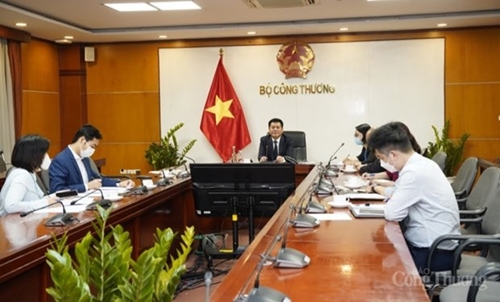The IPEF is designed to serve the Indo-Pacific Strategy, which was announced by the U.S. on February 2 this year towards five main goals – freedom and openness, connectivity, prosperity, security, and resilience.
    |
 |
|
Minister of Industry and Trade Nguyen Hong Dien (center) at the event (Photo: congthuong.vn) |
At the talks, Dien said the initiative covers many new and non-traditional issues that Vietnam is interested in, such as supply chain development, and investment in infrastructure and the environment. However, because its content is quite diverse with many new issues, the framework needs to be flexible in terms of how to participate and the level of participation; and to be adjusted in accordance with the institutions and interests of each participating country, the minister said.
According to the U.S. plan, the framework is expected to be announced at the end of March at an event hosted by President Joe Biden, with the presence of high-ranking officials from other nations.
Dien said that from Vietnam’s point of view, countries should have enough time to study the IPEF's content, thereby making a decision to join or not. It is also necessary for the IPEF to have as diverse as possible participation of countries in the region, especially ASEAN member states, he added.
The official proposed that New Zealand and other nations offer technical assistance to Vietnam particularly concerning the framework’s new fields.
He hoped Vietnam and New Zealand would work closely together to build stances and express them to the U.S. and other countries, especially in areas of common interest such as agriculture.
Minister O’Connor agreed with Dien on such cooperation.
Both sides believed that the development of this cooperation framework requires consultations at a higher level.
In February this year, the U.S. sent to Vietnam a draft document of the IPEF, which mentions four pillars that the U.S. wants to work towards in the framework with other countries. The pillars are fair and resilient trade; supply chain resilience; infrastructure, clean energy and decarbonisation; and taxation and anti-corruption.
Source: VNA